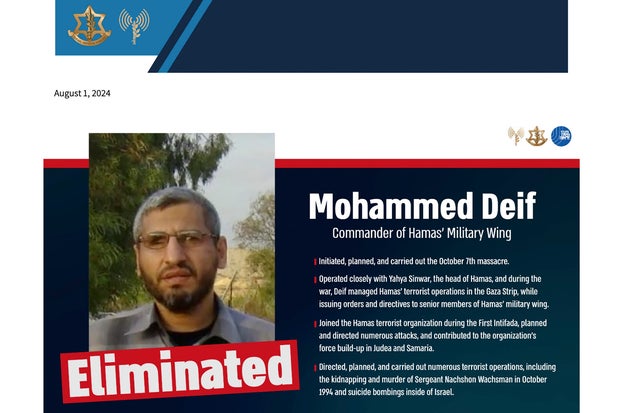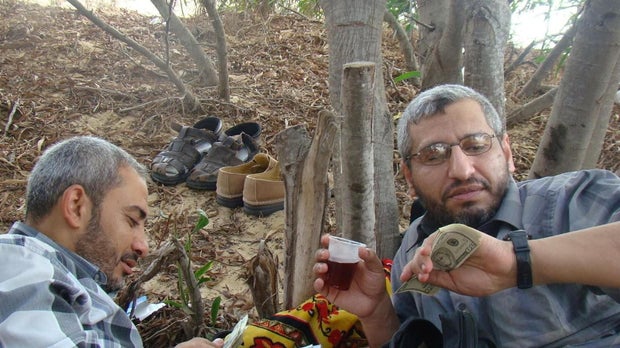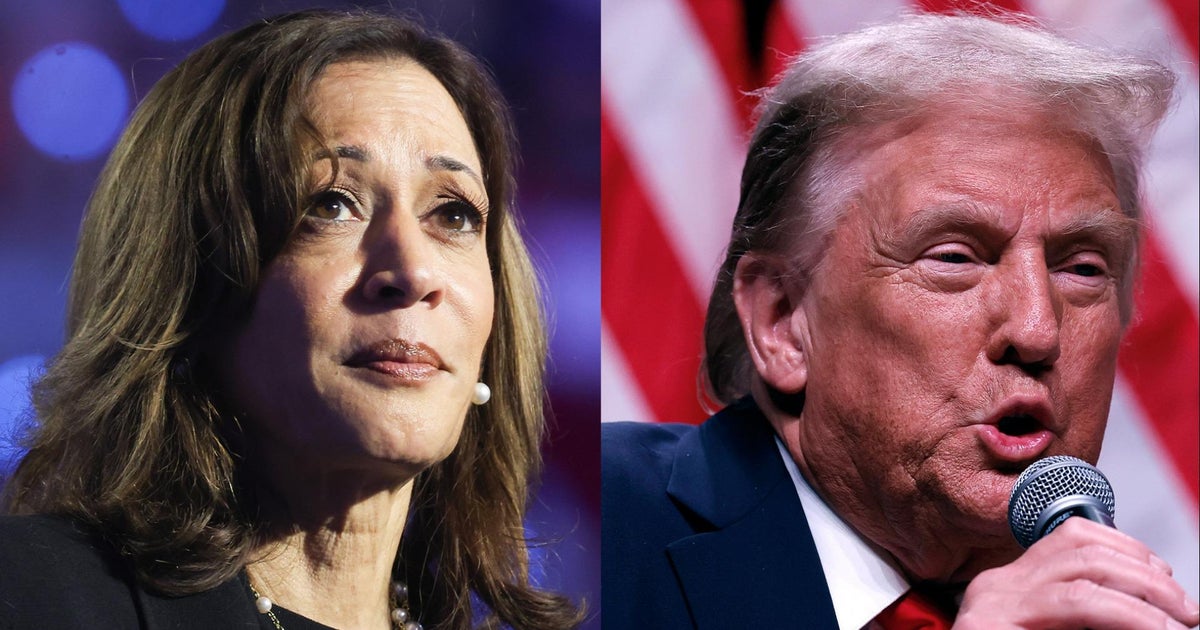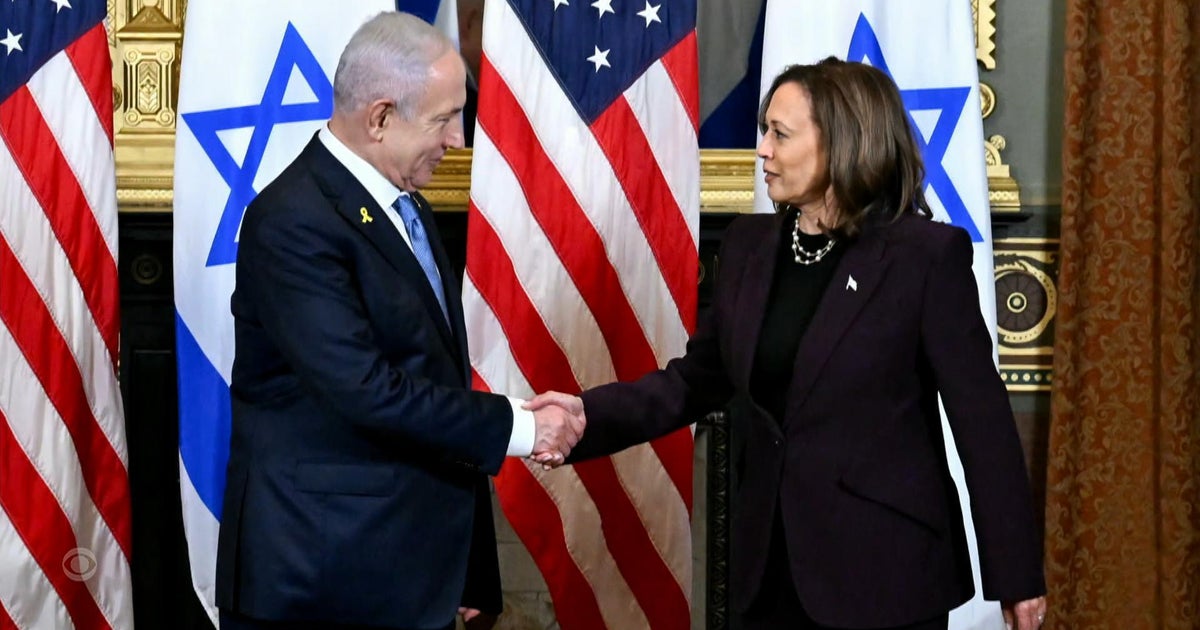CBS News
Israel says Hamas military chief Mohammed Deif killed in Gaza before assassinations of Hamas, Hezbollah bosses

Jerusalem — The Israeli military said Thursday that it has confirmed that the head of Hamas’ military wing, Mohammed Deif, was killed in an airstrike in Gaza in July. The announcement comes a day after an apparent Israeli strike in the Iranian capital killed Hamas’ top political leader.
The rapid events this week have left U.S., Egyptian and Qatari mediators scrambling to salvage talks for a cease-fire deal in Gaza as U.S. Secretary of State Antony Blinken and other international diplomats try to avert an escalation into all-out regional war after the assassination in Tehran of Hamas’ Ismail Haniyeh, Israel’s killing of a top Hezbollah commander in a Beirut strike and — now — Israel’s announcement of Deif’s death.
U.S. Secretary of State Antony Blinken, speaking to reporters during a visit to Asia on Thursday, warned that, “right now, the path that the region is on is toward more conflict, more violence, more suffering, more insecurity, and it is crucial that we break the cycle, and that starts with a cease-fire that we’ve been working on, and I believe is not only achievable, it has to be achieved.”
IDF via AP
He said achieving a truce “first requires all parties to talk to stop taking any escalatory actions. It also requires them to find reasons to come to an agreement, not to look for reasons to delay or say no to the agreement, and it’s urgent that all parties make the right choices in the days ahead.”
There was no immediate comment on the Israeli military’s claim by Hamas, which had previously said Deif survived the July strike in Gaza. A member of Hamas’ political bureau, Izzat al-Risheq, said in a statement Thursday that confirming or denying his death is the responsibility of the armed wing, known as the Izzedin al-Qassam Brigades, which so far was silent.
The elimination of Haniyeh and Deif — two of Hamas’ most senior figures — brings a victory for Israeli Prime Minister Netanyahu. It also puts him at a crossroads. It potentially presents him with a political off-ramp to end the war, allowing him to retreat from his lofty promises of “total victory” while showing Israelis that Hamas’ military capabilities suffered a debilitating blow.
It could also lead him to harden Israel’s position in cease-fire talks, with Israeli officials insisting the blows to Hamas will force it to compromise. Hamas too could dig in as well in the talks — or quit them entirely.
Israel believes that Deif, the head of Hamas’ military, and Yahya Sinwar, the top Hamas leader in Gaza, were the chief architects of the Oct. 7 attack that killed some 1,200 people in southern Israel and triggered the Israel-Hamas war. Sinwar is believed to remain in hiding in Gaza.
Israel Defense Forces/Handout/REUTERS
Israel targeted Deif in a July 13 strike that hit a compound on the outskirts of the southern Gaza city of Khan Younis. The military said at the time that another Hamas commander, Rafa Salama, was killed. More than 90 other people, including displaced civilians in nearby tents, were killed in the strike, Gaza health officials said at the time.
In a statement Thursday, the Israeli military said that “following an intelligence assessment, it can be confirmed that Mohammed Deif was eliminated in the strike.”
In its 10-month-old campaign of bombardment and offensives in Gaza, Israel has killed some 39,480 Palestinians and wounded more than 91,100 others, according to Gaza’s Health Ministry, whose count does not differentiate between civilians and combatants. More than 80% of the population of 2.3 million have been driven from their homes, the vast majority crammed into tent camps in the southwest corner of the territory, with limited food and water.
So far Netanyahu has said he is determined to continue the war until Hamas is destroyed. Far-right nationalist coalition partners, on whom he relies to stay in power, have threatened to bolt the government if he halts the war.
After the announcement on Deif, far-right Finance Minister Bezalel Smotrich said the “defeat of Hamas is closer than ever.” He said the military would continue to “eliminate thousands of other terrorists until our security is restored and we bring the hostages home.”
Israeli Defense Minister Yoav Gallant said the strike that killed Deif was a “significant milestone” toward achieving the goals of the war. “The results of this operation reflect that Hamas is an organization in disintegration,” he wrote on X.
Deif was one of the founders of Hamas’ military wing, the Qassam Brigades, in the 1990s. He led the unit for decades through campaigns of suicide bombings against Israeli civilians, volleys of rocket fire into Israel, and repeated past Israeli assaults on Gaza since Hamas took power there in 2007.
He remained a mysterious, underground figure in Gaza. He never appeared in public, was hardly ever photographed and only rarely was his voice heard in audio statements. He survived a string of Israeli assassination attempts.
Haniyeh’s killing in particular threw into disarray months of efforts at reaching a deal for a cease-fire in Gaza and a hostage release. Haniyeh had been a main negotiator in those talks.
Qatari and Egyptian officials had tense exchanges with U.S counterparts over the assassination, said an Egyptian official with direct knowledge of the talks, speaking on condition of anonymity to discuss the internal discussions.
While the U.S. has been pressing Egyptian and Qatari mediators to get Hamas to compromise, the Americans can’t “pressure the other party, Israel to … refrain from provocative acts,” the Egyptian official said, calling the assassination “reckless.”
Qatar’s prime minister, Mohammed bin Abdulrahman bin Jassim Al Thani, expressed frustration in a post on social media, saying: “Can mediation succeed when one party assassinates the negotiator on the other side?”
Blinken said Wednesday that the U.S. had no prior knowledge of the strike in Tehran that killed Haniyeh.
The Egyptian official said no deal was likely in the near future since Hamas must now name Haniyeh’s replacement. Mediators had been waiting for Hamas’ response on the latest version of the deal. Instead, after Haniyeh’s funeral, expected Friday, he said they will reach out to Hamas officials to explore the next steps.
After Haniyeh’s assassination, Iran has vowed revenge against Israel, and the killing of Hezbollah commander Fouad Shukur in Beirut could also bring reprisals – raising fears of a wider spiral of escalation.
The Egyptian official now said the priority was preventing full-scale war.
CBS News
Polls open in Pennsylvania, voters line up in Pittsburgh

Watch CBS News
Be the first to know
Get browser notifications for breaking news, live events, and exclusive reporting.
CBS News
Montana 2024 Senate race has Jon Tester facing reelection challenge from Tim Sheehy

Sen. Jon Tester and Republican challenger Tim Sheehy are facing off in Montana as the Democratic incumbent fights to hold onto his seat in the Senate in a race that’s key to determining which party controls the upper chamber.
Considered the most endangered Democrat seeking reelection in the Senate this cycle, Tester, a moderate in deep-red Montana, has been under the political microscope for months as he campaigns to keep the seat he’s held for nearly two decades. Although the 68-year-old has fended off previous challenges, shifting demographics and political dynamics in the state appeared to enhance the pickup opportunity for Republicans in the 2024 election.
Sheehy, a former Navy SEAL and founder of an aerial firefighting company, received his party’s backing as the candidate to take on Tester. The 38-year-old worked to draw a contrast with Tester, portraying himself as an outsider during the campaign while painting the Democrat as an establishment candidate with deep ties to Washington. He also touted bringing jobs to Montana with his business, which made him wealthy enough to help fund his campaign.
Getty Images
Sheehy, who grew up in Minnesota, has faced criticism for lacking the deep roots that Tester has in the state. He has also faced questions about discrepancies in his story of how he sustained a gunshot wound. Meanwhile, Tester sought to portray his opponent as an out-of-touch carpetbagger, likening the GOP candidate to rich out-of-staters who have flocked to Montana in recent years.
Tester is a third-generation Montana farmer. First elected to the Senate in 2006, his brand is well known in the state, and despite its more conservative politics, he’s won reelection twice as a moderate Democrat.
But Montana’s political landscape has changed. In 2020, Donald Trump won Montana by more than 16 points, and trends suggest that an influx of new residents in the state is made up largely of Republicans. The state’s changing dynamics posed a serious hurdle for Tester — the sole Democrat serving in statewide office in Montana.
The Montana Senate seat is a key target for Republicans looking to build a GOP majority in the upper chamber. And it marks among the final Democratic holdouts in the Great Plains, and in red states more broadly.
With a narrow 51-49 majority in the Senate, Democrats have little room for error. After Sen. Joe Manchin opted not to seek reelection, all but guaranteeing a GOP flip of his seat in West Virginia, Republicans looked to Tester’s seat as the next best opportunity to gain ground.
CBS News
Polls open, Election Day underway after Harris, Trump make final campaign pitches

Watch CBS News
Be the first to know
Get browser notifications for breaking news, live events, and exclusive reporting.











